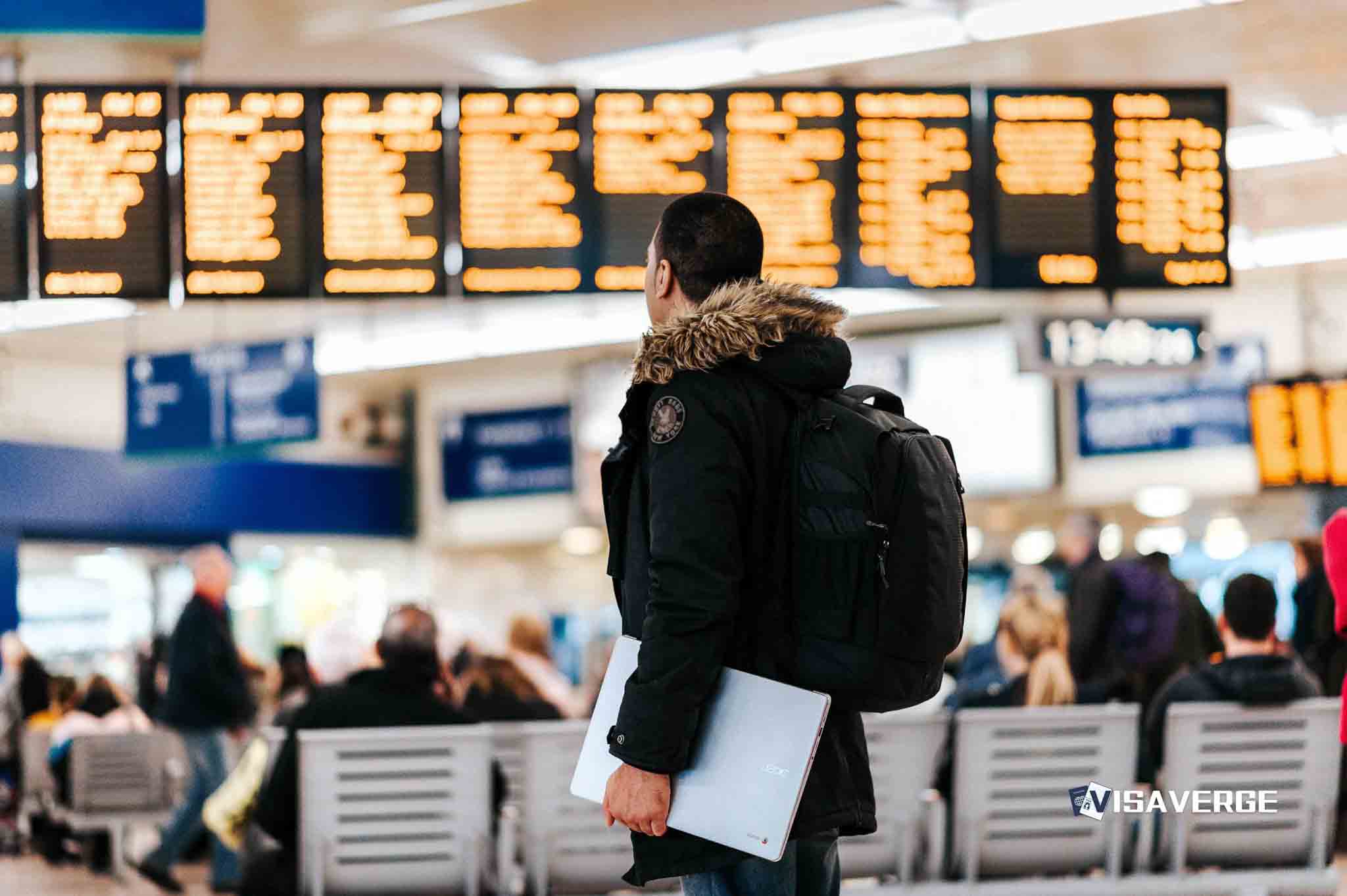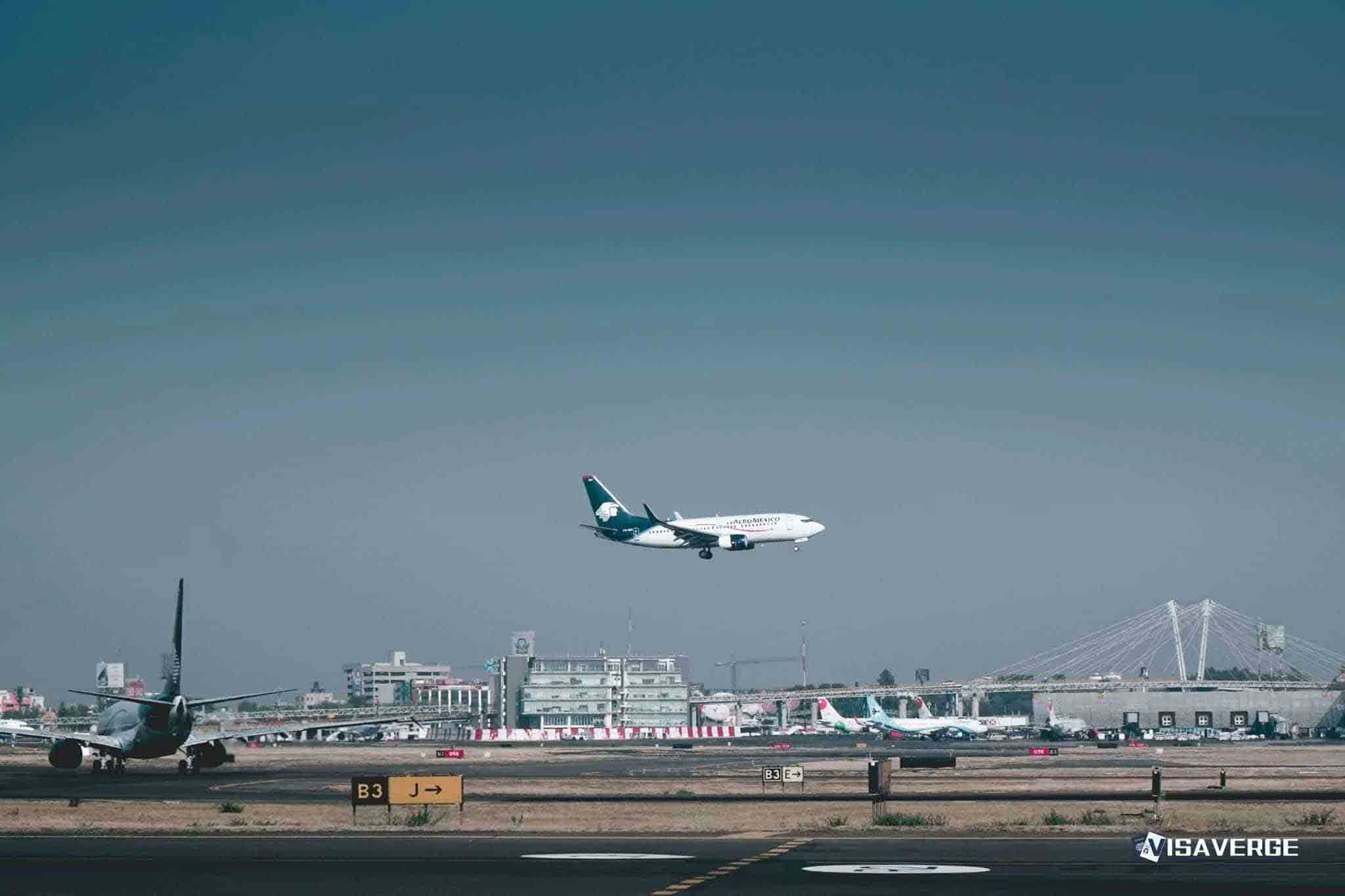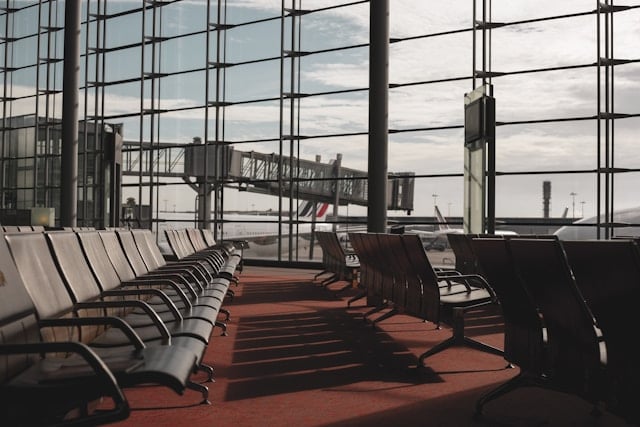Key Takeaways
• Paris-Orly Airport canceled 130 flights on May 18, 2025, causing empty check-in desks and further disruptions.
• Finnish Aviation Union strikes forced Finnair to cancel 110 flights on May 19, affecting 14,000 passengers at Helsinki Airport.
• Travelers should check their flight status, use online check-in, and pack essentials in carry-ons to reduce stress and delays.
A passenger arriving at an airport to find the check-in desk completely empty—hours before their scheduled flight—can feel lost and frustrated. This unsettling experience is not uncommon in May 2025, as major airports around the world navigate one of the most difficult travel periods in years. Widespread problems, from air traffic control system outages to labor strikes, have left thousands of travelers confused and stranded.
Let’s dig into what’s causing these empty check-in desks, why this problem is especially bad right now, and what steps passengers can take to reduce stress and protect their rights. We’ll also explore the wider impact on airports, travel companies, and ordinary travelers caught in the middle.

Airport Chaos: Where and Why It’s Happening
Airports are supposed to be well-oiled machines. Staff at the check-in desk welcome travelers, confirm documents, and direct them through to security. Unfortunately, recent weeks have turned these routines upside down.
Air Traffic Control Failure at Paris-Orly Airport
One of the worst disruptions happened at Paris-Orly Airport. On May 18, 2025, a breakdown in air traffic control technology caused chaos throughout the airport. As reported by VisaVerge.com, about 130 flights were canceled on Sunday alone. The problem didn’t end that day. The French civil aviation authority, worried that problems would continue, asked airlines to cut their Monday schedules by 15%.
With hundreds of flights axed and more delays expected, many check-in desks stood empty. Staff members were often pulled away to emergency meetings or sent home if their flights were canceled. In these situations, it’s normal for check-in desks to close early or never open at all for affected flights.
Finnish Aviation Union Strike at Helsinki Airport
At Helsinki Airport, the problem is different but just as troubling. The Finnish Aviation Union, representing airport workers, began a series of strikes demanding better working conditions and pay. On May 19 alone, Finnair had to cancel about 110 flights. Around 14,000 passengers felt the impact, many showing up to find no one at the check-in desk. With more strike dates set for May 30 and June 2, Helsinki’s troubles are far from over.
Newark Liberty International Airport’s Staffing Crisis
In the United States 🇺🇸, Newark Liberty International Airport has faced delays and cancellations for several weeks. Here, it’s not only about labor disputes; the problems include both staffing shortages and technical issues with radar equipment. By May 14, incoming flights to Newark were delayed by an average of three hours. When shortages are this bad, airlines must concentrate their staff at the most urgent points, leaving some check-in desks empty or under-staffed for long periods.
Other Affected Countries
France 🇫🇷, Finland 🇫🇮, United States 🇺🇸, Portugal 🇵🇹, Spain 🇪🇸, Indonesia 🇮🇩, and the United Kingdom 🇬🇧 have all seen various forms of air traffic disruptions in May 2025. The reasons include equipment breakdowns, labor disputes, and bad weather. In these situations, empty check-in desks have become a visible sign of deeper problems in the aviation system.
Why Are Check-In Desks Empty?
It helps to know what’s happening behind the scenes when travelers arrive at the airport and see nobody at the check-in area. Here are some of the main reasons check-in desks may be empty right now:
- Staff shortages: Massive cancellations and delays mean fewer staff are needed for flights that will not depart. Workers might be covering emergency roles somewhere else in the airport.
- Cancellations and flight changes: If your flight is canceled, the desk might close early or not open at all. The few available staff may be redirected to help with stranded passengers or manage rebookings.
- Very early arrival: While guidelines say to arrive early—2 hours for domestic flights and 3 hours for international[6][9]—check-in desks do not typically open until closer to the flight time. If you get there too soon, you might have a longer wait than normal.
- Online check-in: With online check-in now available 24 hours before departure for most airlines, and closing 45 minutes before domestic flights or 90 minutes before international flights[6], some passengers can avoid the desk entirely. But if issues prevent using online check-in, the empty desk can be a bigger problem.
In normal times, these situations are rare. But with the French civil aviation authority and the Finnish Aviation Union both in the news, even regular travelers are now feeling the effects.
What Passengers Should Do If They Find an Empty Check-In Desk
If you find yourself staring at an empty check-in desk, don’t panic. You do have options, even during these unusual times.
1. Check Your Flight Status
Before you even leave your house, always check your flight status. Airlines often update flight times, delays, or cancellations on their websites or apps, sometimes at the last minute. If your flight isn’t scheduled to leave, there’s no point in heading for the airport.
2. Use Online Check-In
Online check-in can save you time and help you avoid empty desks altogether. Most airlines now open online check-in 24 hours before departure[6][9]. This lets you print your boarding pass or save it digitally.
If you don’t have checked baggage, you can head straight to security. If you do need to check a bag, try to find a bag-drop counter that’s open, which is sometimes different from the main check-in desk.
For full details, you can visit airline and airport official sites. The U.S. Department of Transportation offers a good overview of passenger rights and common procedures.
3. Allow Extra Time at the Airport
Crowds are unpredictable, and lines can stretch for a long way, especially when staff is short. It’s wise to arrive earlier than normal: at least 2 hours before a domestic flight and 3 hours before an international one. This buffer gives you the best chance to handle changes or workarounds if your usual check-in options aren’t available.
4. Expect Delays and Cancellations
Even if you’re checked in, be prepared for sudden changes. The situation is still unpredictable across airports like Paris-Orly Airport and Helsinki Airport, with the Finnish Aviation Union and other groups planning more strikes. Long waits and even last-minute cancellations may happen.
5. Pack Essentials in Your Carry-On
You may be separated from your checked luggage due to delays, cancellations, or missed flights. Keep essentials—like medication, travel documents, and valuable items—in your carry-on bag, so you’re not stranded if your main baggage is lost or stuck.
6. Know Your Rights
Europe’s Regulation EC 261/2004 protects passengers when flights are canceled, delayed, or when they’re denied boarding[4]. You could be entitled to compensation, a meal voucher, or even a hotel stay in some circumstances. Airport and airline staff can tell you more, but knowing you have rights puts you in a stronger position.
Impact on Travelers, Airlines, and the System
With airports in France 🇫🇷, Finland 🇫🇮, United States 🇺🇸, and several other countries affected all at once, the impact of these problems spreads far and wide.
For Travelers
- Stress and confusion: Finding no staff at the check-in desk adds more stress for people already anxious about traveling.
- Missed flights: Passengers who arrive very early may wait for hours, while others not checking online could arrive too late to check in before the desk closes.
- Extra costs: Missed flights or delays might mean paying for last-minute hotels or new tickets.
For Airlines
- Lost revenue: Mass cancellations, like those at Paris-Orly Airport and caused by the Finnish Aviation Union strikes, mean fewer tickets sold and higher costs to care for stranded travelers.
- Strained staff: Employees must juggle angry customers, last-minute changes, and workload spikes when systems break down.
- Damaged reputation: Repeated incidents, especially if visible on social media or in the press, hurt how airlines are seen by the public.
For Airports and Governments
- Pressure to upgrade technology: With radar outages and telecommunication problems at Newark Liberty International Airport, officials are under pressure to spend more on modern air-traffic control systems.
- Call for labor talks: Long-running disputes, like those led by the Finnish Aviation Union, highlight workers’ demands for changes. Without solutions, more strikes could come.
Transportation Secretary Sean Duffy has warned that the same telecommunications problems at Newark could happen at other airports in the United States 🇺🇸. Outdated equipment and not enough trained staff make such problems more likely.
Tips to Reduce Travel Headaches During Ongoing Disruptions
While no one can guarantee a smooth journey during periods of chaos, you can take a few steps to reduce your stress:
- Double-check your airline’s app or website before traveling to the airport.
- Use online check-in whenever you can. Save digital copies of your boarding pass and travel documents to your phone.
- Arrive earlier than usual but not so early that check-in desks may not have opened.
- Pack your most important items in your carry-on bag, not in checked luggage.
- Stay calm and polite with airport and airline staff—they’re facing tough days, too.
- If your flight is delayed or canceled, ask directly at the airport or by phone about your rights and what help the airline can offer.
Historical and Future Context
These current disruptions didn’t appear overnight. Modern airports depend on reliable technology, steady staffing, and good labor relations. When any of these break down—whether it’s French civil aviation technology or a Finnish Aviation Union labor dispute—the effects are felt by thousands.
Historically, mass travel problems have happened before, sometimes after volcanic eruptions (like Eyjafjallajökull in Iceland 🇮🇸, 2010) or global events (like the COVID-19 pandemic). What’s special about 2025 is the number of places experiencing these issues at once, and the mix of reasons: technical failures, strikes, and not enough workers.
Looking ahead, airports and airlines might face more shut-downs if labor agreements aren’t settled. Technology updates, like new air traffic control systems, will cost money and take time. For travelers, this means staying alert to changes well into the future.
Key Takeaways
- Global travel disruptions in May 2025 have led to empty check-in desks at major airports, such as Paris-Orly Airport and Helsinki Airport.
- Staff shortages, strikes by groups such as the Finnish Aviation Union, and technical problems are all contributing to the chaos.
- Travelers should check their flight status, use online check-in, and pack essentials in their carry-on luggage. Arriving early is wise, but arriving too early may lead to longer waits with no staff available.
- Passengers in Europe are protected by rules like EC 261/2004 and should ask for assistance if needed during disruptions.
- Leaders warn that more disruptions are possible unless air traffic technology and staffing issues are fixed soon.
- Airports, airlines, and governments must work together to prevent future chaos and restore confidence to travelers.
As changes continue throughout the summer of 2025, travelers need to stay informed and prepared for sudden disruptions. Staying calm and following the best advice can help make a frustrating trip a little bit smoother.
For more details on your passenger rights or airport procedures, the International Air Transport Association (IATA) website provides up-to-date information.
While it’s not easy to deal with empty check-in desks or sudden cancellations, being proactive gives you the best chance to reach your destination—and to do it with nerves and wallets intact.
Learn Today
Check-in desk → An airport counter where travelers present documents, check luggage, and receive boarding passes before passing through security.
Finnish Aviation Union → A labor group representing airport and airline employees in Finland, known for organizing strikes over pay and workplace conditions.
Air traffic control → A system and staff that manage the movement of aircraft on the ground and in the air to ensure safety and efficiency.
EC 261/2004 → A European Union regulation that gives air passengers rights to compensation during flight delays, cancellations, or denied boardings.
Online check-in → A digital process that allows travelers to confirm their flight, choose seats, and obtain boarding passes via the internet before arriving at the airport.
This Article in a Nutshell
In May 2025, mass flight cancellations, staff shortages, and strikes create empty check-in desks and chaos at global airports. Travelers face uncertainty at Paris-Orly and Helsinki. Knowing your rights, checking flight status, and using online check-in are key defenses against unexpected delays, cancellations, and stressful airport experiences during these turbulent times.
— By VisaVerge.com
Read more:
• Paris-Orly airport faces second day of flight cancellations after system failure
• Paris-Orly Airport Meltdown Strands Thousands for Second Day
• Paris-Orly Airport Halts Flights After Sudden Radar Failure
• Gulf Shores International Airport to launch commercial flights May 21
• TSA red flags: How Eye Contact Can Affect Your Airport Screening













